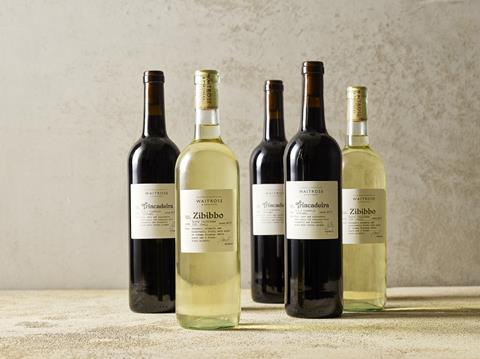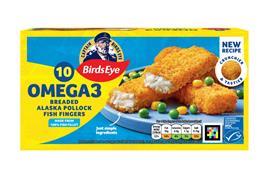
Waitrose has removed plastic and foil sleeves from wine bottles as part of a limited trial aimed at reducing unnecessary packaging.
They will initially be removed from bottles used within four lines of the grocer’s own-label Loved & Found range. If the trial is a success Waitrose plans to extend the switch across the entire 10-bottle range by the end of the year – a move that would help it cut an estimated 500kg of unnecessary packaging annually.
Although the sleeves serve no functional purpose, the change will put an end to the need to “cut and tear” this part of the packaging, an act which forms part of the “ritual” of opening a bottle, Waitrose said.
“The bottles look quite different as the neck appears naked, so it will be interesting to see how our customers react to us removing these familiar sleeves,” said Waitrose beer, wine and spirit sourcing manager Barry Dick. “I for one am looking forward to not having to wrestle with the packaging.
“Bottle neck sleeves were introduced many years ago to prevent pests such as moths and weevils from ruining wines kept in dark, damp cellars. Nowadays few people have wine cellars and those who do tend to keep them in much better conditions. This has meant that the sleeves have remained for purely aesthetic reasons and are no longer needed to protect wine.
“The quality of corks used by the wine industry has also been dramatically improved. The bottles in our trial will be corked with a new FSC cork which has been extensively tried and tested for its ability to resist being contaminated with TCA, which makes corks smell and taste mouldy and ruins wine. TCA is the reason why cork fell out of favour, but cork has great sustainability credentials, which is why it’s making a comeback.”
It’s the latest trial conducted by the supermarket aimed at reducing packaging waste across its wines and spirits lines. In January the retailer ditched glass bottles in favour of aluminium cans across its range of mini wines.

















No comments yet